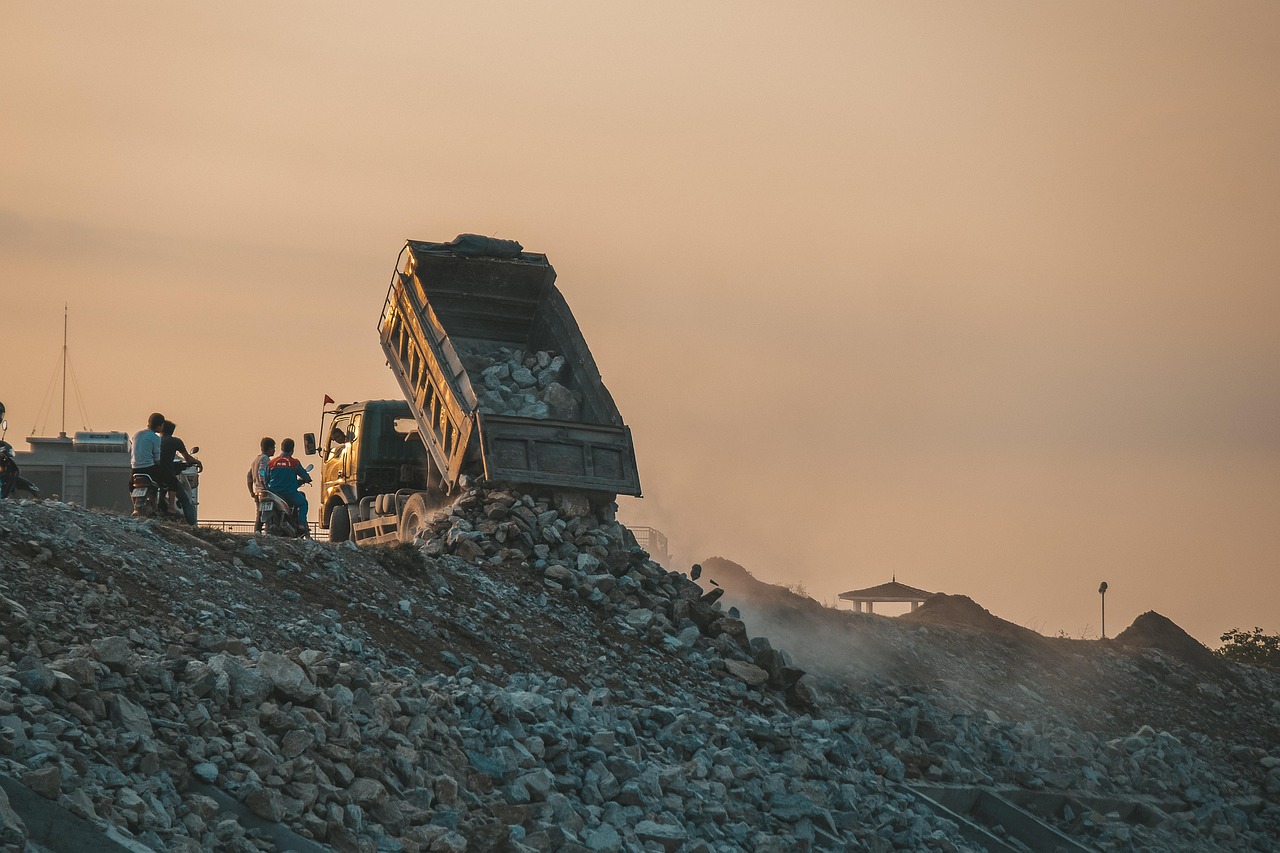Apply now to join our next cohort of Community Science Fellows and Community Leads!

Image by Dinh Khoi Nguyen from Pixabay
Concerned residents of South DeKalb County came together to form The Chapel Hill Organization, Inc. to increase awareness and promote positive long term change in their community. They aim to identify the source of the health concerns and develop the tools necessary to inspire action within and outside of their community. By creating a documentary and interactive GIS application to showcase the harmful effects of Seminole Landfill they hope to empower the community to advocate for change. This project focuses on just a small part of their ongoing efforts to stop the normalization of unhealthy environments in communities of color.
DeKalb County is located in north central Georgia and is part of the Atlanta Metropolitan Area. Decatur is the unincorporated county seat. According to the 2020 census there are 764,382 residents of DeKalb County. The community represented in this project calls South DeKalb County home and they are disproportionately impacted by harmful industrial practices compared to their northern counterpart. This is due, in part, to a 2010 consent decree which classified South Dekalb as a non-priority area in the county’s push to comply with the Clean Water Act. It is also due to over 96 million gallons of toxic waste that go through the defective sewer lines in South Dekalb County annually. Until recently, companies were allowed to send toxic waste throughout the community without the requisite permits as required by Federal law and the County had no effective industrial pretreatment program until 2018.
Residents of South DeKalb County, Georgia are burdened with the consequences that come with living in proximity to Seminole Landfill, Snapfinger Wastewater Treatment Plant, and failing sewer lines. The presence of the landfill and industrial practices have negatively impacted residents in multiple ways: increased health problems, lowered property values, and discouraged outdoor recreation.
The Chapel Hill Organization is an organization formed by a group of concerned South DeKalb County residents. Their mission is to inspire residents to work together to reduce pollution, protect natural resources, and improve public health. Justice on Chapel Hill with support from the Emory Hercules Program began to research environmental issues within their community. Through their research and communications with the county department managers and commissioners, the residents realized that their issues were not a priority for their local government.
The Chapel Hill Organization is working to discover why the health of the residents of South DeKalb County is deteriorating. They are going beyond stating the presence of unnatural odors, but investigating the cause of the odors. The results will support their vision to de-normalize their community’s acceptance of poor living conditions to promote behavior change, and encourage residents to become more proactive in facing community issues and environmental injustice.
Before change can begin, they need to document to what extent their community is being impacted. To do that they utilized the Smell My City app, which allows residents to note the exact location, time, and intensity of the odors they smell in their neighborhood. This was an important milestone for the community because it provides tangible evidence that there is a problem that goes beyond hearsay. Additionally, it shows individuals living in the area that they are not alone.
To complement the success of the Smell My City app, The Chapel Hill Organization aims to further their understanding of the community’s perspective on the landfill. Specifically, they asked a high school student, college student, recent college graduate, and homeowner to share their thoughts in a video format to be shared with the wider community. They will be given videos on the negative impacts of landfills, drone footage of Seminole Landfill, and test results showing the level of PFAS in the community. Their perspectives along with a scientist’s will be shared as part of the documentary series, “The South DeKalb County Toxic Plague”, to empower the community to advocate for change and hopefully catch the attention of policy makers.
Below is a snapshot of the questions to be addressed in the documentary.
Early August: The project team comes together to discuss the scope of the project and the objectives.
Mid/Late-August: The residents featured in the documentary answer the provided questions in video format. Results from the soil and water samples arrive and are analyzed.
September/November: The documentary is edited and finalized.
Clarence Williams
Darnell Echols
Loretta Washington
Catria Woods
Kylen Dent
Jamar Bronner
Debjani Sihi
Dede Lawal (she/her) holds a B.A. in Environmental Science from Emory University and a M.S. in Environment and Sustainability from the University of Michigan. She has experience in marine research, environmental education, and citizen science programming. Currently, she works at the Chesapeake Bay Program as an Environmental Management Staffer supporting progress towards the Wetland, Submerged Aquatic Vegetation, and American Black Duck Outcomes in the Chesapeake Bay Watershed Agreement. Passionate about community-driven projects, she is excited to be a part of the Thriving Earth Exchange fellowship. In her free time she enjoys baking, hiking, and flying trapeze.
(c) 2024 Thriving Earth Exchange